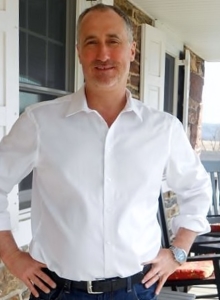 Given the amount, intensity, and dizzying range of rhetoric surrounding education, it may seem counterintuitive to say that it’s hard to find an illuminating voice on the topic. What’s more, the two interviewers have been surrounded by people who, one would think, have all kinds of interesting things to say about a whole range of topics in education, one being an advanced doctoral candidate and the other having just received their PhD from Teachers College, Columbia University. It’s an institution of great historical importance for educational scholarship, but in its current form it reflects the deep incoherence in our national discourse on this crucially important topic. One interviewer would even go so far as to claim that this venerable institution would have trouble producing the ten good citizens required to spare it from divine wrath, were we to transpose Genesis:19 into the realm of educational scholarship.
Given the amount, intensity, and dizzying range of rhetoric surrounding education, it may seem counterintuitive to say that it’s hard to find an illuminating voice on the topic. What’s more, the two interviewers have been surrounded by people who, one would think, have all kinds of interesting things to say about a whole range of topics in education, one being an advanced doctoral candidate and the other having just received their PhD from Teachers College, Columbia University. It’s an institution of great historical importance for educational scholarship, but in its current form it reflects the deep incoherence in our national discourse on this crucially important topic. One interviewer would even go so far as to claim that this venerable institution would have trouble producing the ten good citizens required to spare it from divine wrath, were we to transpose Genesis:19 into the realm of educational scholarship.
But this is a topic that is too important to court despair or cynicism. What we may need is “invigorating pessimism,” which David Blacker provides in his superb new book, The Falling Rate of Learning and the Neoliberal Endgame. Blacker is a Professor of Philosophy of Education and Legal Studies at the University of Delaware, has contributed to publications such as The Monthly Review, and has served as a resource for the Occupy Debt campaign. We talked with him about what Marx might still have to teach us, how once can think structurally about the future of education without disabling teachers, students, and parents, and how student debt has transformed into an “existential form of serfdom.”
Michael Schapira: Your two previous books were published by academic presses. How did you get involved with the people at Zero Books?
David Blacker: I was spending a lot of time in London — a month or five weeks at a time. On a trip there a few years ago I was hanging around a lefty bookstore near King’s Cross called Housmans, looking at philosophy books. I was interested at the time in Graham Harman’s object-oriented ontology, or speculative realism (there is all this specialized nomenclature you are supposed to use). His stuff is published by Zero and I started to notice their books around town and got familiar with their mission. So when I had the project for this book and was looking around, thinking where to go with it, I realized that Zero was my first choice.
What they have shown, first with Mark Fisher’s Capitalist Realism, but also with authors like Laurie Penny and Richard Seymour, is a great ability to inject their titles into public debate — often with a bit of controversy, but from a publisher’s point of view that’s probably what you want. I thought about academic presses, which are fine and which I’ve published with before, but I had this feeling that it was often a bit of a cul-de-sac with them, even if they were nice looking books that get into libraries. But the goal there isn’t really to interface with “the public.” Whereas for Zero that is the mission, to find that kind of niche. Plus Zero prices books well, including inexpensive e-books. At this point, especially if you want to be part of a global discussion, one’s work needs to be available digitally.
Tim Ignaffo: Can you talk about how that venue differs from speaking to a narrower academic community?
I’ve shied away from conferences for a little while, part of it is just idiosyncratic, but some of it is the downtown hotel conference scene, which can be really sterile. I’ve long had a feeling about PES [the Philosophy of Education Society] that there is a lot of talent, but I also feel like there is a tendency for it to be locked up or hermetically sealed in philosophy of education, maybe spilling out slightly into education or philosophy generally, but really kept as this little relic locked in a box. I won’t name names, but I feel like there are a lot of talented people who feel content speaking to that group and don’t really stretch themselves out of their comfort zones.
Tim and Michael: You can name names, we’ll edit it out.
I really shouldn’t, because it’s a double-edged thing. On the one hand I’m saying that I think they are really talented and fully capable of speaking to a wider audience, but there is almost a self-limiting that I sometimes see. I feel the pull because it’s a social pull, seeing new and old friends, which is important if you’re out there in some far flung place with a job. As one of my mentors told me, the reason that you go to conferences like that is so you don’t die alone. But I thought if I didn’t allow myself the option of falling into that I’d be forced to make new friends and go on to different things, which is what I’ve been trying to do.
I’m not saying this to sound sound grandiose. It may just be the kind of thing I personally need to do to not get bored with things. But there is a lot of lip service given to being a “public intellectual,” and so on, too. And I don’t think giving papers at academic conferences constitutes a robust public engagement.
Michael: Something I’ve noticed in philosophy of education or educational discourse more generally is that it’s difficult to be pessimistic. That might not be the right word, but for you to be as dark as you are in this book and not give some sort of romantic resolution at the end of the story, that we can all just do x and we feel better afterward, was refreshing to me.
There is more emotion around that question of resolution from activist readers of the book than even right-wingers. The fatalism is more upsetting to them.
Michael: Do you think you can be fatalistic in an academic setting? Or does it have to be in this more public setting with Zero?
One of the little blurbs Mark Fisher gave me for the book was “invigorating pessimism,” which may be my favorite. I think you are right that within at least the PES milieu, I’m not sure I’d say all academic milieus, there is this activist aura. The expectation is that there should be uplift of some kind, and if you don’t provide uplift or the psychological comfort of giving someone something “positive” to do in response, people reject your argument. In fact I talk about this in the book, it’s almost an argument from psychology: “You made me feel disempowered. You made me feel bad about things and made it difficult to figure out what I could do personally to better things, therefore your argument is wrong.” I think on reflection anyone would recognize that that is a bad argument and maybe we are fucked, it’s completely possible. Maybe there are structures that are more powerful than individual agency, or even collective agency to overcome in certain situations.
To me that is the more old school Marxist position, which is not an argument in and of itself, but a lot of people in Critical Pedagogy who are speaking to these issues from the left are not making the general critique. I think the idea for them is that you can create some kind of change in politics and economics via these islands of difference in education; I think that doesn’t fit within the general Marxist critique. In fact in the worst case it can be a diversion of energies.
One thing I want to clarify though is that my criticism is not that it’s pointless to be an educator, that you should just jump off a cliff. It is, and can be ethically, morally, and even aesthetically worthwhile. I just think that people are fooling themselves a little bit if they specifically think that their teaching activities constitute political resistance in a meaningful way. I think that’s somewhat illusory. At worst, it’s pernicious even — a diversionary tactic from the real issues.
Tim: Is this a point you can convey to your students who want to become teachers?
Well, I don’t normally teach this stuff to undergraduates, but to graduate students sure. Everyone is shocked and depressed at first, because there is a little shocking quality to the argument insofar as I don’t provide them with a “here’s what you can do.” In fact I try to address directly that question of fatalism, because a deeper issue for me is that this can-do attitude is actually part of the problem, especially for example when you bring environmental concerns to the forefront. Those are to me the really dark clouds that are coming closer. This book is not about climate change or energy explicitly, though I talk about it a little, but what frames everything is a certain type of “we can fix this” mentality. I’d be prepared to argue that this is in many instances wishful thinking, especially when applied to the educational setting. I don’t think we educate our way out of this. In an odd way, an unintentional or tragic way, it can aid the forces of darkness to provide that message.
My general argument is that the traditional leftist narrative, which was quite serviceable in its day as a critique of education as exploitation, is simply a Kantian critique, which is that education was treating people as means and not ends, so is an affront to human dignity — not to mention it’s bad for you physically and has these deleterious effects on all levels of the person, like what Marx talked about in terms of factory work. The great Marxist critiques of education in the English speaking world — Bowles and Gintis, Daniel Liston, a lot of the critical pedagogy school — is that education is exploitation, it’s excessively vocational and narrowed down in an artificial way to service the needs of capital accumulation and not to service a broader conception of human needs.
My argument is that this critique was serviceable for its day, but I think capitalism has moved beyond that and made that critique almost quaint. Anyone of a certain age in the US and Western Europe realizes that being exploited may even be good, “please, find a capitalist to exploit me, at least that means I have a job.” If I could boil it down to one quote that inspired me to think about this it would be from Joan Robinson, who is an English economist, and she said something to the effect that for the worker “there’s only one thing worse than the capitalist exploiting you, and that is not being exploited by the capitalist within a capitalist economy.” So you are placed outside the loop of production in this precarious, disposable position, and I think that’s because capitalism itself has shifted.
In the book I say that that traditional leftist critique of education was appropriate for what I call the “all hands on deck” phase of capitalism, which coincides with the advent of universal schooling. Sticking with the US for simplicity’s sake, we can say the 19th century extending into the 20th century is this period when everybody’s needed, and we are bringing in immigrants and people from the countryside to set up factory production. It’s no coincidence that universal education really has its seedbed in Massachusetts, the same place where capitalism in the US really started, for example in the mill towns. I see that project of universal education as being very much intertwined with that phase of capitalism because of capitalism being motored by the all hands on deck need for human capital, as per Marx’s surplus labor theory of value. There is this tremendous growth period in terms of population, settlement patterns, consolidating populations into working units in order to generate profits for capitalist firms, etc. Anyway, universal education and literacy becomes this vast, value-added project for workers.
While there were many Jeffersonian ideals of citizenship floating around in the 19th century, I think at the end of the day what really motivated the erection of the institutional form, what really brought elites together to erect this institution of schooling and to surround it with this legal apparatus that made it both a right for everyone and compulsory, is this all hands on deck mentality. It works in that double-barreled sense, because it’s stronger than say free speech. You’re not constitutionally obliged to exercise those rights, but you must go to school, so schooling is as wired into the system as anything can be.
Due to an intensification of automation, technology, etc., I think that capitalism has advanced beyond that and it’s not the case that quantitatively more and more workers are functional and useful for profit accumulation, for the system. We’ve reached a point where we’ve out-produced ourselves, where productivity has increased so that simply not as many workers are needed. From the cold logic of capitalist accumulation, this increasingly youthful, educated group is kind of just surplus, they are more of a management and political stability problems — which we see inklings of in the Arab spring, or occupy movements, or London, or Greece, where there are huge levels of youth under-employment, or here where people with massive student debt are working for minimum wage at Starbucks.
This overshoot that we’ve reached is what I call somewhat hyperbolically “eliminationism.” To me it is a dramatic way to represent what I take to be a general withdrawal of interest from elites in that project of universal education because the needs of capital have changed. The enthusiasm is merely vestigial in some respects. It’s vestigial in the sense that there might be a little bit of thought towards citizenship. But it’s ideological in that its important function is to maintain the idea that we can educate our way out of the economic crisis and mass unemployment among youth. This is a cousin of the neoliberal idea that teachers are to blame for “failing” schools and all of that manufactured crisis rhetoric.
It’s like that Robert Reich argument from the 1990s. We just need to upgrade education because everyone is going to be symbolic analysts and creative workers. Instead of working at River Rouge, we’ll work at Google and Facebook. There are a lot of people working at those places, but it’s a miniscule number compared to that all hands on deck period. Almost by definition the productivity gains that high tech, value-added workers bring create a situation in which less of those workers are needed. Both the right and the Keynsian left proceed with this vision that all of these wonderful jobs are there for the taking if only we could educate ourselves “up” to them. An infernal hamster wheel. But what if those productivity gains are not magically going to be recycled and redistributed to the little people once they have become “lifelong learners” who are now worthy of the largesse? What then?
Michael: Those jobs have also become so decoupled from any kind of coherent national economic strategy or idea that there is a civic import to how we educate people for future employment. These people are entrepreneurs working for their own personal gain.
It’s definitely got a more libertarian cast to it than previous elite’s ideology, which had a greater degree of coordination with the working class. A coexistence was necessary, like with the New Deal. You buy labor peace with concessions regarding working conditions, things like that.
But as you said, that libertarian mindset doesn’t even need to think about coexistence with a class of workers. You just focus on your own innovation out there. The contingencies of social coordination are minimized as everything is automated and/or placed online.
Tim: It’s the Google Bus. That is investment in transportation.
Absolutely. And it spills out into all different kinds of political developments like austerity. I think there are people out there whose goal is to destroy public schools, stroking Persian cats like Bond villains, but for most people it’s just that the enthusiasm for the project has waned and you don’t get as many people who are interested and motivated to rally to the side of public education. You’ll get parents and some people who have vestigial civic commitments, but that’s not the same as the old coalition where a large number of people, including a segment of the elites, really felt like it was in their interest that these institutions were robust.
The shift has been to think of education as being purely for myself. Universities have been incredibly complicit in this. In most pamphlets or webpages you see info about how you’ll earn more over your lifetime as a college graduate, even if you have to go into debt now. They’ve put that on page one to justify their own existence by virtue of the earning power that graduates are able to generate as individuals. It’s nothing like an investment in society; it’s more like a literal investment in a stock or bond that pays off in more money later to those particular customers/investors.
I don’t mean to advance any good old days nostalgia, but if you go back to the land grant initiatives of the 19th century there is a much more robust understanding of that civic sense. If you were a farmer in Indiana at a certain point it was much easier to see how you as a taxpayer benefited from supporting the local university. This was in part because these bright young fellows from the agricultural extension showed you this cool stuff you could do with fertilizer or some new technology. It was easy to see how the general diffusion of knowledge through society via higher education was a benefit to them. Whereas now I think that same farmer in Indiana, such as they haven’t been displaced by Monsanto, wonders why they should support taxation so this suburban kid can go to college to invest in himself and reap the financial rewards himself. If he’s going reap the financial rewards he should foot the bill. It’s like a user fee, or a toll on the highway. The logic of it is hard to beat politically in terms of rhetoric. It’s easier for state legislatures to withdraw from commitments, which leads to the rise in student indebtedness.
That is just one aspect of that general mood or situation in which it’s easier for elites to withdraw their enthusiasm for the project, and often the general population withdraws it as well as they are fed a steady diet of well-funded corporate propaganda. Large segments of the American population will merrily aid in the destruction of their own public schools in this manner.
Michael: As part of the bigger explanatory framework you flesh out in your book, would you say that education has been delinked from the project of democracy? If you just sit at the level of description then most schools are very clearly anti-democratic in the way that they function.
There was always been that double edged sword, where there are these important movements of inclusion like civil rights, Title IX, and the disability movement in the 1970s. You look at these various inclusion movements as maybe a high water mark of education’s contribution to democracy. My sense as a student of de-segregation as reflected in reading the legal materials from that time, and we’re reflecting on it now after the Brown anniversary, is that education was valued in society in terms of economic life chances, but also that it’s crucial for citizenship and participation in the society generally. Participation was understood as both economic and political participation, which is this dual imperative towards inclusion that served as a major premise for desegregation.
If we take that as a high water mark for our understanding of education and democracy, I can only agree that the political participation part has only withered, despite the formalism of school board elections and the like, so we are left with only the economic part, which ironically is probably going too. As the rhetoric gets more hysterical about the economic benefits of education, I think that shows you that it’s actually less and less relevant.
Tim: For our generation student debt becomes our mortgage. This seems to be an example of the “existential form of serfdom” that you talk about in the book.
It also puts a ceiling on the recovery on that market. You’d want an economist to run the numbers, but it certainly stands to reason that the young are putting off these life decisions that in 1970s, 80s, or 90s young couples did, like buying a house. The happiest scenario is that they delay for a decade what people used to do much quicker in terms of setting up their homes.
What I wanted to do in that part of the book was not just complain about indebtedness, but to incorporate that into an explanation of how things are changing under capitalism and how educational institutions are implicated in these various ways, from kindergarten through higher education. Debt is just one part of the symptomatology. It’s an important symptom, and like in medicine symptoms are not unimportant, symptoms can kill you. But still by themselves they don’t provide a diagnosis.
One example I like to give is about the son of a colleague of mine, a very bright kid, who just entered medical school. He was a Spanish major in college and before entering medical school his goal was to work at a clinic for low-income Latino populations. But once he dealt with the reality of the bills for medical school he couldn’t do the free clinic plan and even come close to paying back those loans. So he was going to have to go into some specialty that was more remunerative. I’m not sure if that meant plastic surgery in Beverly Hills, but certainly something that would have shunted him into a money making specialty. To me that’s a story that shows it’s not just his loss — though it is in that he’s going to have these big debts — but it’s our loss as well because we are not going to have this young doctor serving an underserved community. So as a public we “save” money short-term by not having to pay for his medical school, but we are big losers many times more because he is placed in a position where he must be out for himself and not the rest of us. In the book I argue that this neo-feudal educational debt bondage has existential aspects as well that limit the possibilities of the rising generation like never before. Their future is simply not as open as the last few generations of Americans have felt their own to be. This will, I think, in time, develop into a kind of political instability that we have not yet seen. Occupy was just a tremor. And there is no reason to think that the responses will be limited to those on the left end of the political spectrum.
This post may contain affiliate links.







